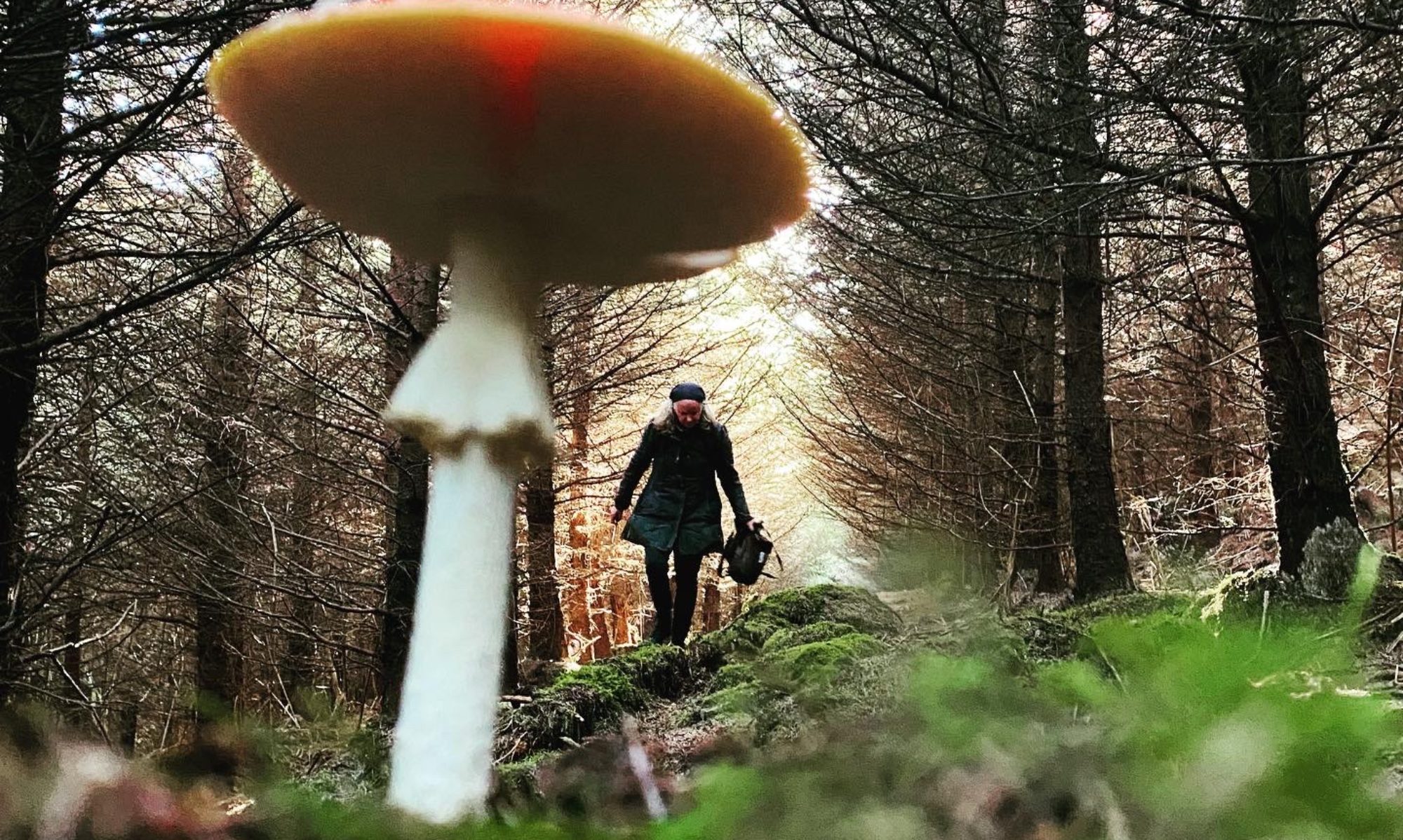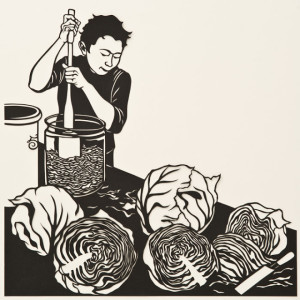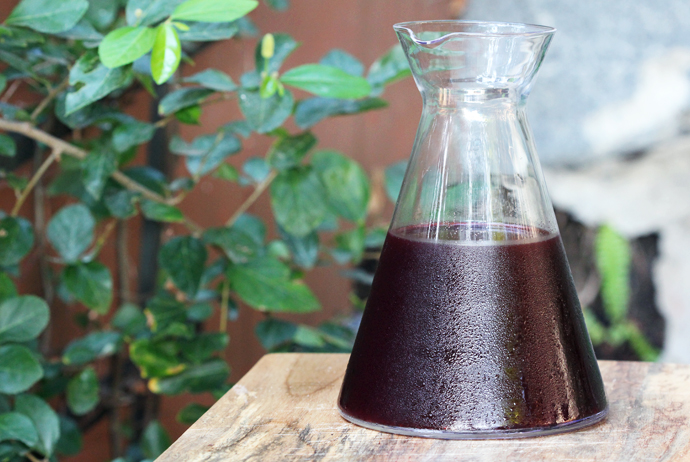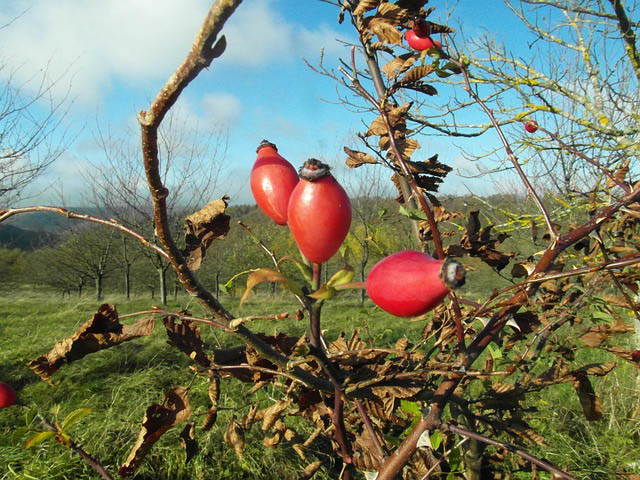Culture, a paper cut by Nikki McClure
Elderberry Shrub
Today I was in Health and Healing in Wicklow town, adding some of my silver jewellery and steampunk jewellery to an empty display case. (thanks Neville!)
While there, I picked up a bottle of Bragg’s Live Apple Cider Vinegar. (As an aside, I’ve heard they have not been able to produce enough of their delicious unpasteurised vinegar to keep up with demand and it can be hard to come by these days!) When I got home I took a few jam jars half filled with elderberries and filled the rest with the vinegar and some sugar (I used Rapadura sugar). I took some parchment paper and folded it under the metal lid, so that the vinegar wouldn’t react with the metal.
I’ll shake this occasionally and leave it to infuse for the next 4-6 weeks.
The properties of the elderberry will infuse into the vinegar, preserving its medicinal properties and at the same time, creating the base for a tasty drink in the coming year. I’ll dilute this with sparkling water, or hot water and lemon to enjoy as a drink.
You can do this with any seasonal berries, herbs or fruit.
“A shrub is made by combining fruit, sugar and vinegar into a bright and complex syrup that delivers plenty of fruit flavour.”
Keep the shrub in a cool place and enjoy diluted with water, club soda, or in a mixed drink. Also nice to take in a shot glass for a concentrated sup of goodness!
Rose-hip infused vinegar
Rose hips are easy to spot in the hedgerows at the moment. Did you know that all types of rose hips are edible?
Rose hips have the great virtue of being high in a number of nutrients and especially high in vitamin C. Rose hip syrup contains 300mg per 100g. This is up to four times more than blackcurrant juice and twenty times as much as the juice of an orange, according to Roger Phillips in his book on Wild Food.
Conventional roses are heavily sprayed with chemicals. Choose organically grown or wild roses only.
You can dry them for tea, make rose hip syrup or chutney or do this easy rose hip infused vinegar:
Collect rose hips in the autumn or early winter. Rosa Canina are the native wild rose in Ireland, but there are lots of Rosa Rugosa around and it’s worth your while to seek them out. They rose hips on the Rugosa are HUGE in comparison with the wild ones. Luckily in Wicklow, the council seems to have planted them in most of the hedgerows and along the motorways. Any rose hips will do, but be sure they aren’t sprayed with chemicals.
Coarsely chop the rose hips no need to remove the hairs or seeds yet (unless you’ve the patience of a saint)! Cover them in vinegar (I prefer unpasteurised apple cider vinegar- but use what you like). Let this infuse for 4-6 weeks and strain through a muslin covered sieve. You want to be sure to catch all the hairs as they cause irritation and are unpleasant. Squeeze the material in the muslin to get out all of the liquid. Add honey or your preferred sweetener if desired, bottle and label.
Drink this as a shot for a hit of vitamins and minerals. Or add a tablespoon to a mug of warm water, or to sparkling water or as a mixer. A delicious way to preserve the bounty of the seasons.
As the raspberries in our garden are often coming out at the same time of the year, sometimes I mix the rosehips and raspberries to make a lovely and naturally sweet infused vinegar or shrub.
Wild and Slow do a lovely and very informative PDF file which is free to download here. It has lots of recipes and traditional uses.




